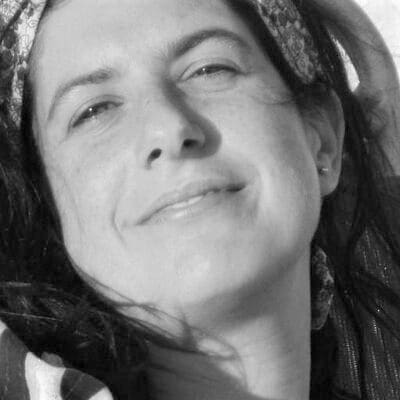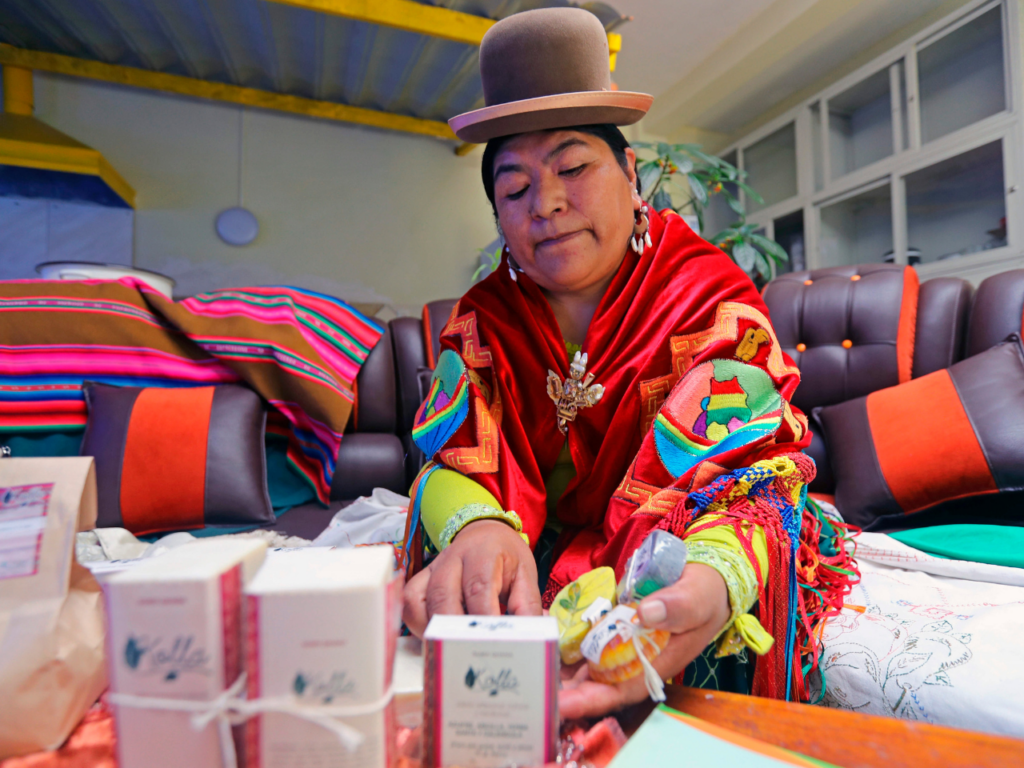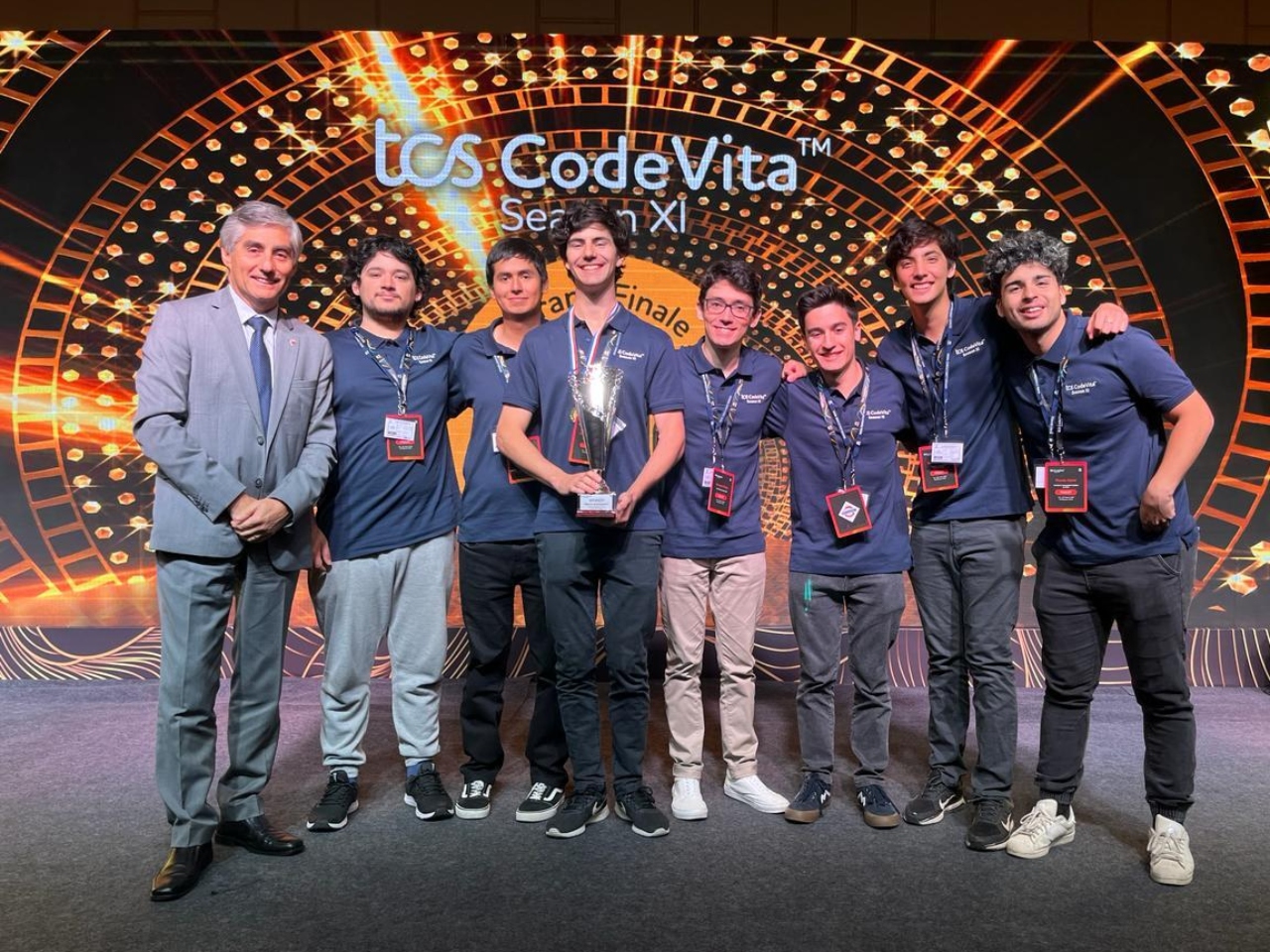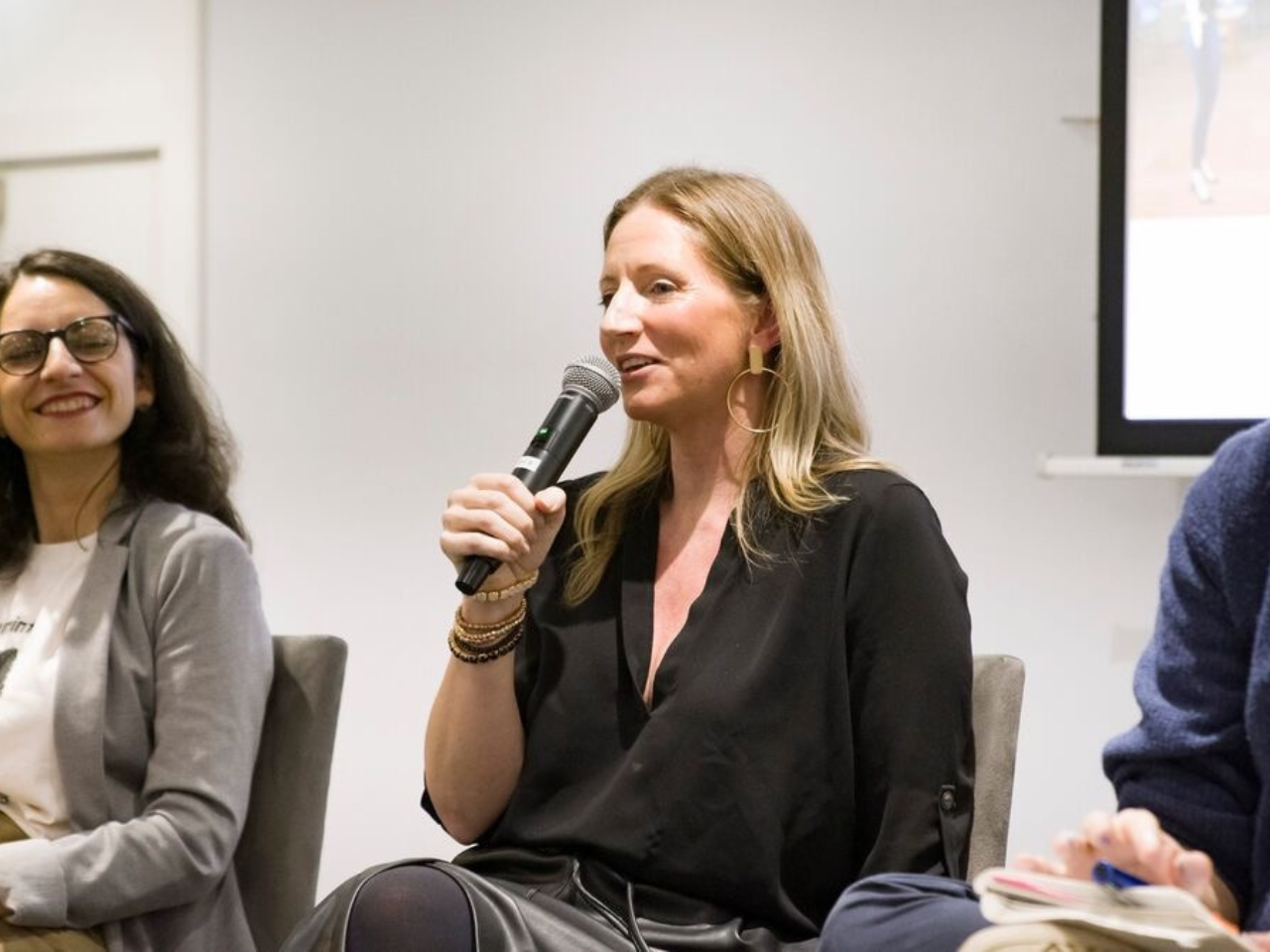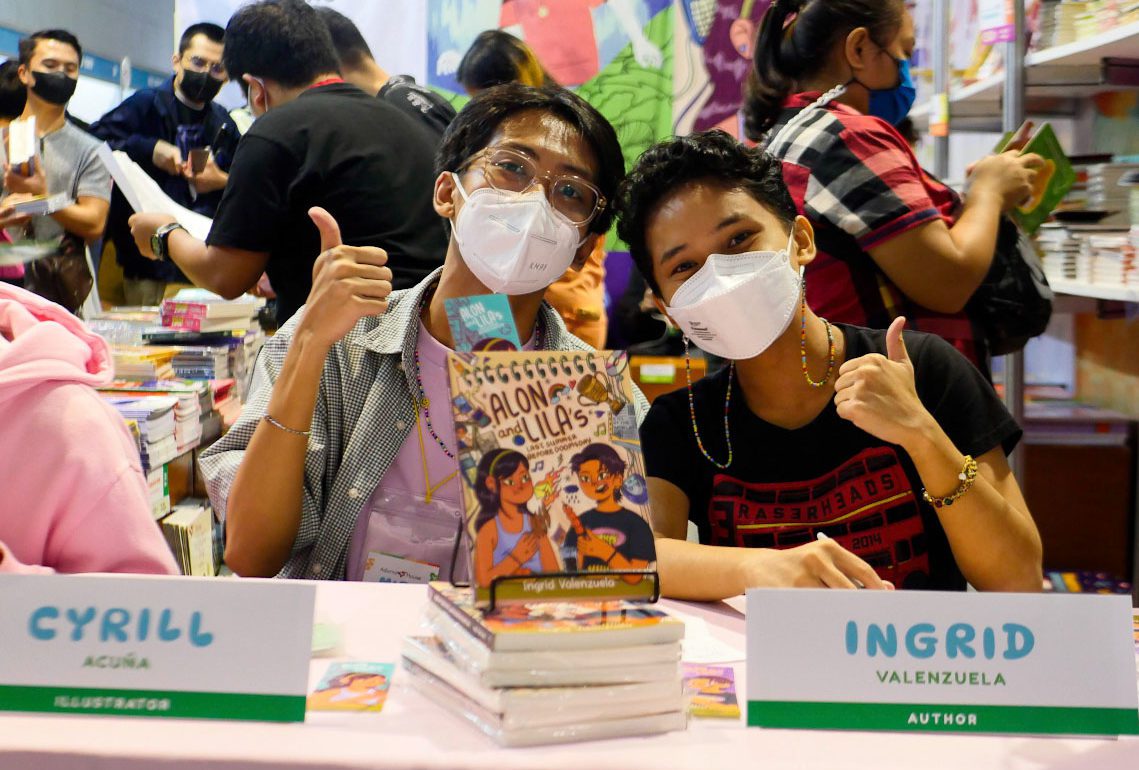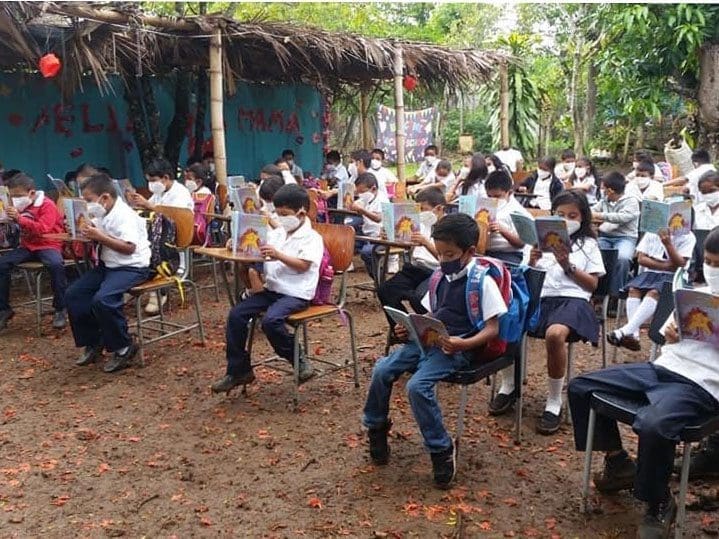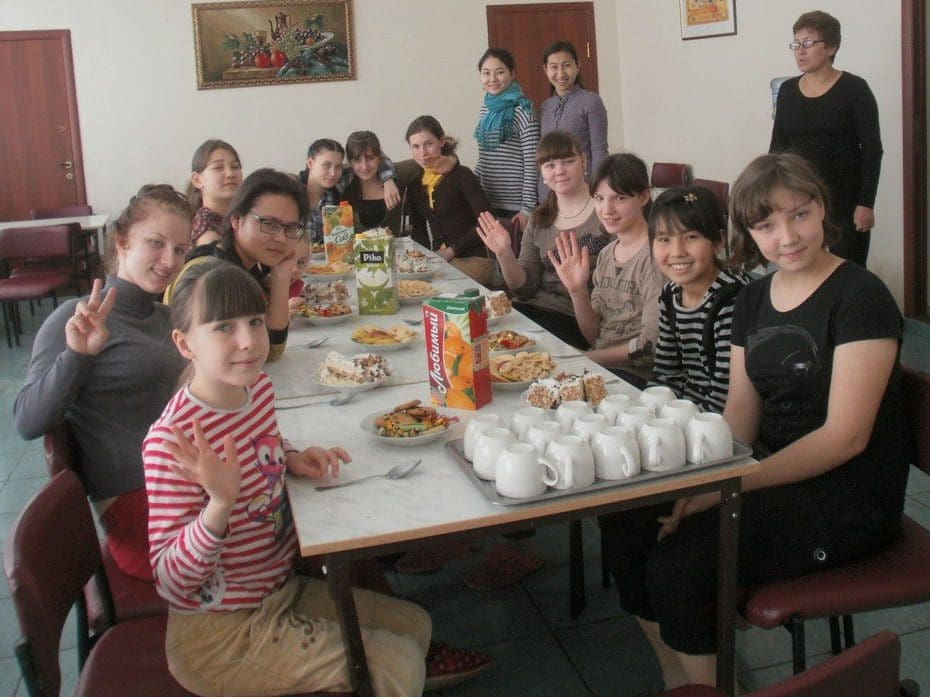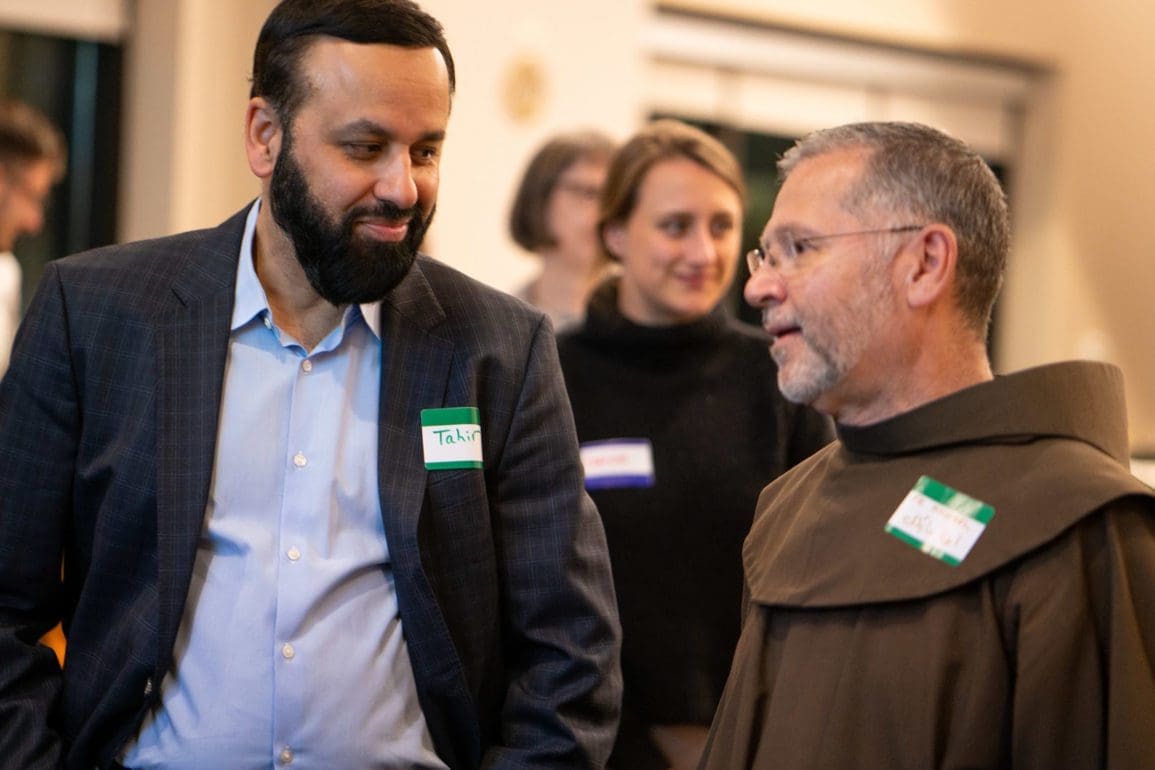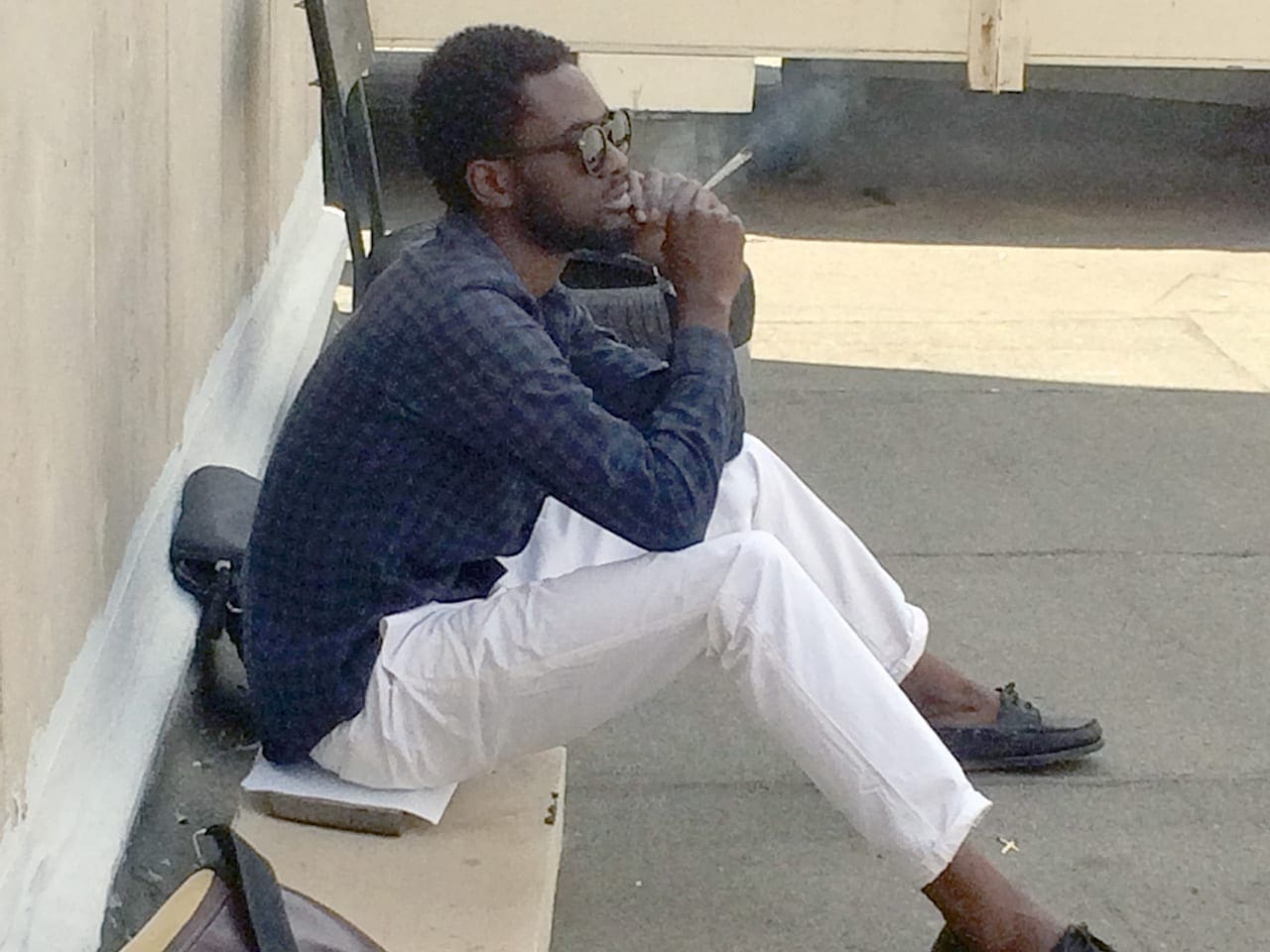Chemist transforms oil waste into eco-friendly products honoring her indigenous ancestry
Chemistry gave me the power to transform something dangerous into something useful. I began working to convince cooks to sell me their used oil – training them in the harmful effects of reuse on health.
- 5 months ago
March 3, 2024
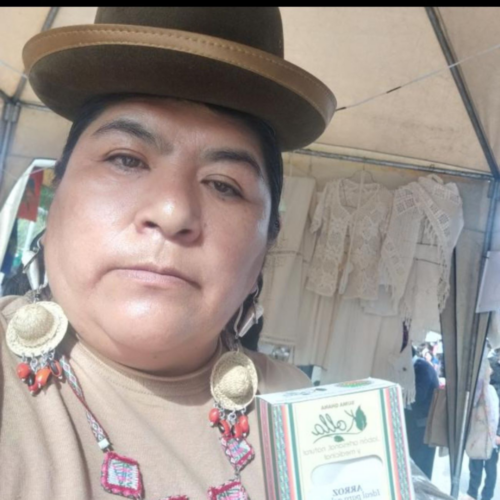
LA PAZ, Bolivia — The name of my company – Suma Qhana Jabones Kolla – means “beautiful light.” In my small home-based laboratory, I commit to Mother Earth, making eco-friendly soaps and detergents. In their creation, I strive to reduce pollution and preserve the environment.
Growing up in Altiplano in the middle of the Andes Mountains, the wind spoke, surrounding me with the magic and energy of my indigenous ancestors. In that incredible place, the Aymara people worked the land under the rays of the sun, and at night the cold set in. They lived in harmony with the environment.
I honor their legacy in this laboratory with its cement floor, corrugated steel walls, and blue glass. Surrounded by containers, test tubes, wooden molds, and machinery, I do magic with science. Wearing my white lab coat over my traditional cholita clothing, I sprawl chemical formulas on an acrylic blackboard. From my birthplace in the La Paz highlands to my home in Bajo Pampahasi, my work keeps the traditions of my ancestry alive.
Read more stories from indigenous communities from around the globe at Orato World Media.
Orphaned as a child, I rediscovered my dreams in the fabric of my ancestral clothing
At five years old, I faced a cruel life, immigrating from the Andes Mountains to the city after the death of my mother. Left orphaned with no family to protect me, I lacked resources and faced a deep wound alone. To eat and have a place to sleep, I worked alongside women in the city selling garlic and paskallas in the streets. I had no dreams for my future.
Eventually, I encountered a group of sisters in a nearby convent. They let me stay, offered me an education, and encouraged me. The sisters explained my identity and I developed an enormous love for my culture. Meanwhile, at school, a teacher named Humberto inspired me with his love for chemistry.
Read more stories on the environment at Orato World Media.
Through innovation, I found my passion and chemistry guided my dreams. It became my everything. Every day, the mixture of solutions occupied my thoughts – each experiment a revelation. When it came time for college I wondered, “What do I do?” I had no money to pay for tuition. Unwilling to ask the nuns for more, I felt the need to fend for myself.
One day, feeling my dreams slip away, I sadly lowered my head and my hat fell to the floor. Taking it in my hands, I shook it off. I saw my reflection in a stained-glass window and my gaze fell upon my ancestral clothing. I felt a strength emanating from my Aymara skirt and top. I walked to the market and sold my clothes as happy tears rolled down my cheeks. I used the money to pay for my classes.
Discarded oil polluted the environment, chemist repurposes waste
Working tirelessly from dusk to dawn to finish my degree, I made small pieces of jewelry to sell, and I won some money in a competition. Although I rarely slept, each moment felt like a link in a chain, daring me to dream. With effort and sacrifice I graduated from the Universidad Mayor de San Andrés with a degree in Industrial Chemistry.
After school I worked in the mayor’s office in El Alto, Bolivia, in quality control. I quickly noticed something in the regulation of solid waste management. The regulations neglected handling of used oils. These oils ended up being dumped down drains in houses and restaurants, or dispersed on the ground. A lack of knowledge existed regarding good practices for its temporary and final disposal.
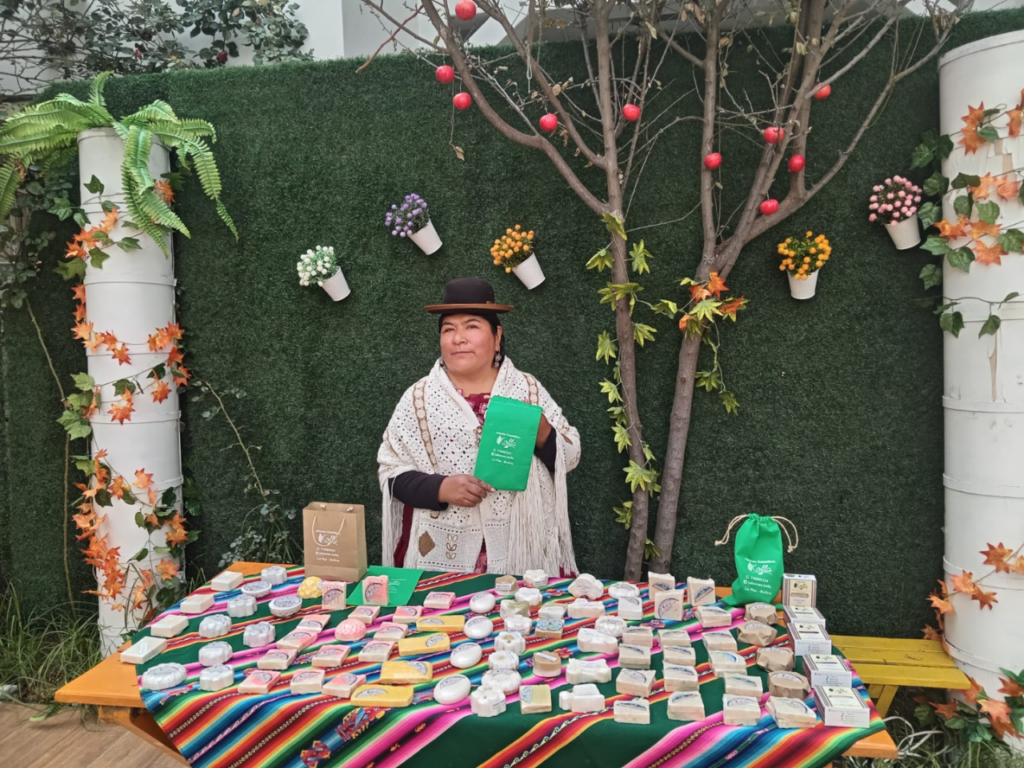
Knowing a single liter of oil contaminates a thousand liters of water, I felt an urge to make the public aware of this. I also noticed how fast-food establishments reused the oil several times over, making it even more toxic and carcinogenic. Seeing the burnt oils in trays and drums, it suddenly occurred to me, I could use them. An idea emerged: “I’m going to turn the oil into dish soap!” It felt unbelievable when my first test at home in the kitchen proved successful.
Chemistry gave me the power to transform something dangerous into something useful. I began working to convince cooks to sell me their used oil – training them in the harmful effects of reuse on health. Store by store, I looked for supplies. Despite the strange looks they gave me, I found myself walking back to my house with a big bottle of oil in each hand.
Ancient plants come back to relevance through modern chemistry
Little by little, I began making effective, high-quality products using oil. In my kitchen laboratory, as I prepared the best recipes, people became interested, but the process remained complicated. Trying to overcome endless bureaucratic hurdles felt like swimming with my clothes on. I felt the weight with every step.
High registration costs and tax requirements kept me in the dark, bumping into walls, but I persevered. Store owners acted like I was crazy when I asked them to sell me their oil, slamming the door in my face. Others gave me the oil, but it was loaded with particles and food remains.
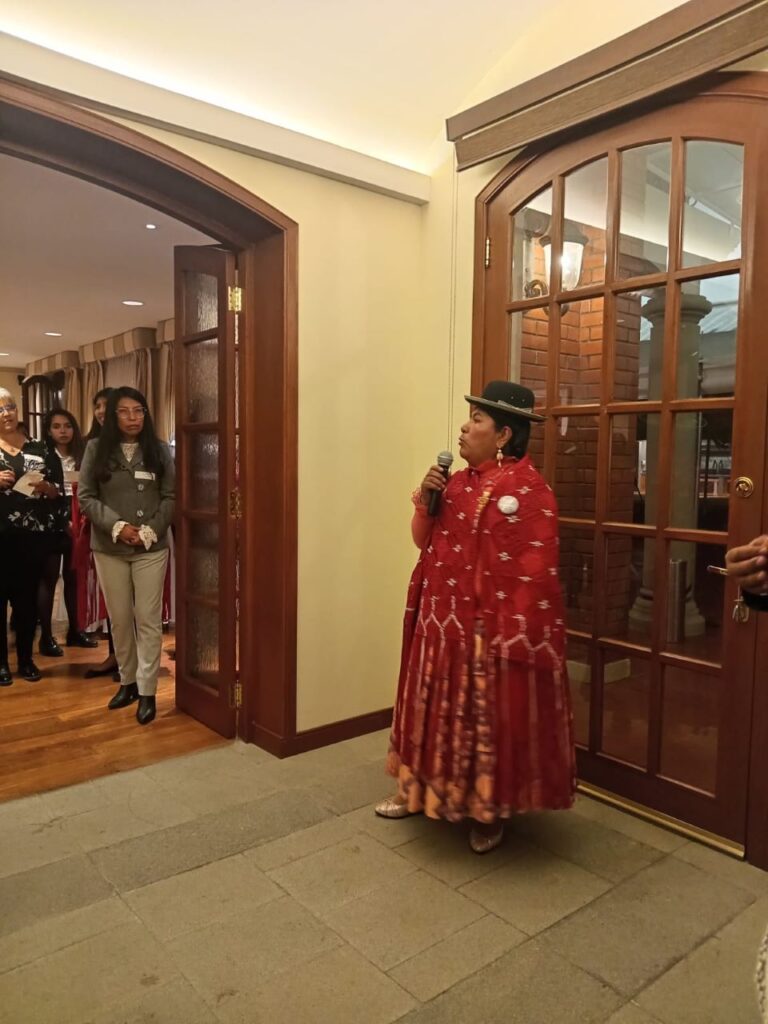
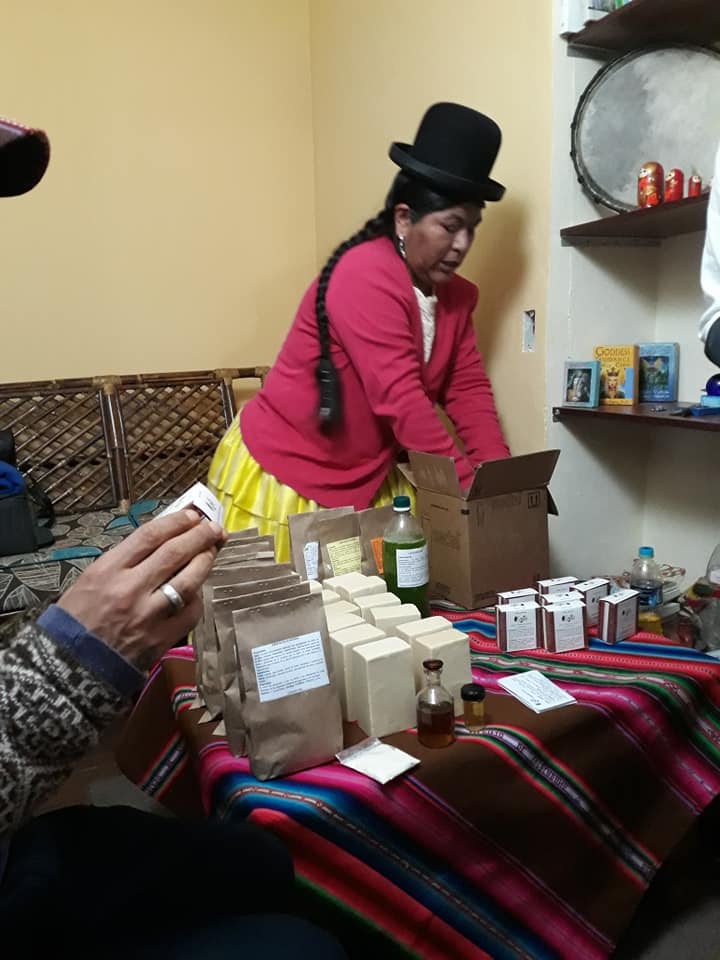
I set out to train the owners in the necessary condition of the oils and slowly they understood. Soon, a community sprung up around the project. The laboratory in my house became my world, where I transform used cooking oil into soaps and detergents. Outside, the painted brick and cacti in recycled drums stand out amongst my neighbors. In the garden, butterflies mingle amongst the flowers, apple trees, roses, and ancient medicinal plants.
Now, people arrive at the lab to drop off oils. They even pay me to take it. Placing the oil in a barrel, I eliminate the impurities before mixing in other elements. Once solidified, I cut the soaps with a handmade tool. Is some soaps, I integrate resource from the Bolivian Amazon like cupoazú, coconut, almond, cusi, and motacú.
Medicinal plants like rosemary and broom infuse the richness of the land into my creations. Rescuing ancient resources and making them visible again fills me with love. I use these items in honor of their rich history and culture.
Chemist preserves Aymara culture while helping women in need
In my notebook, I log each plant and root, and the pages fill with each passing day. I dream of this log becoming a book to preserve the ancient ways. I serve as a guardian of knowledge – teaching it to others to avoid its extinction. With each page, my admiration and gratitude for these magical plants grows.
As my project expands socially, opportunities arise, like teaching my work to single mothers, elderly women, and victims of violence. When a sister is in need, I give her soaps to sell. This job fills my heart and soul as I watch women become strong. Refusing to be defeated, we look into each other’s eyes and hold hands – an exchange taking place between us.
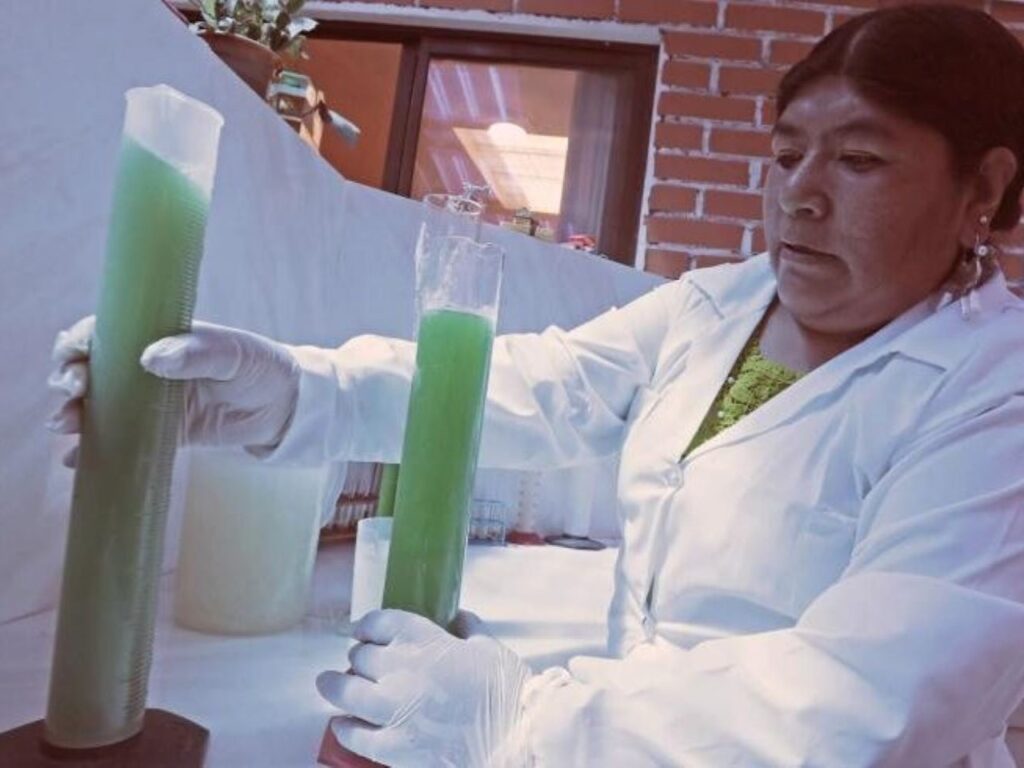
I dream of my project growing big and strong; that caring for the planet will radiate light and give energy to all women. From my small place on this planet, in the middle of this remote land, I am a proud Aymara woman. Wearing my skirt in the wind, I dedicate my wisdom to my ancestors and vow to protect Pachamama – Mother Earth.
